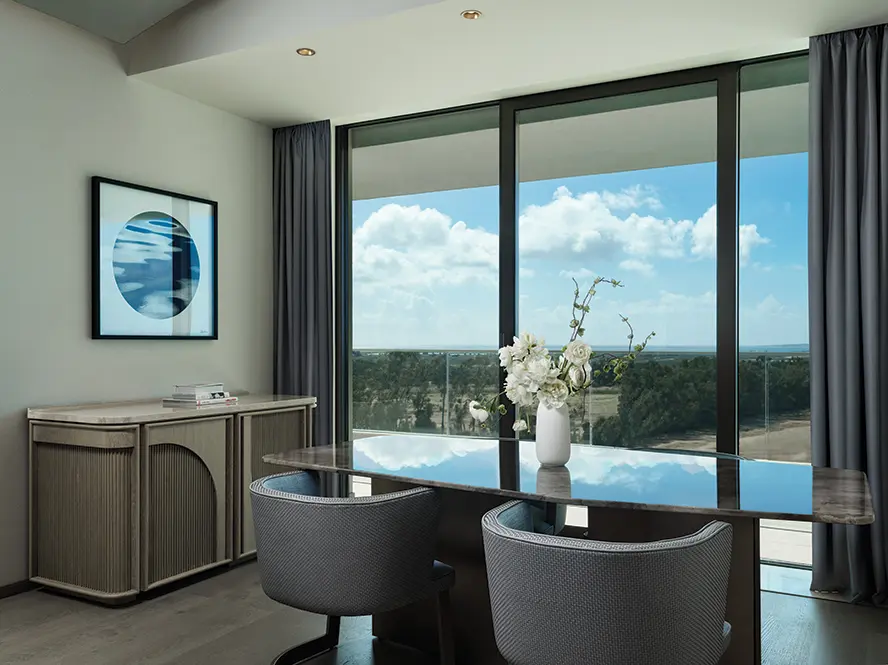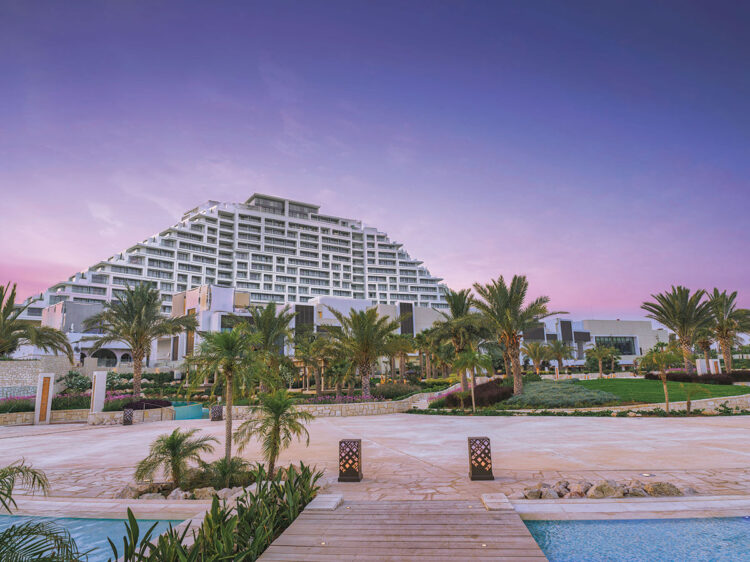IAG speaks with Grant Johnson, Senior Vice President and Property General Manager of Melco Resorts’ newly opened City of Dreams Mediterranean, about the ambitious project and why Cyprus is the right place for Europe’s first true integrated resort.
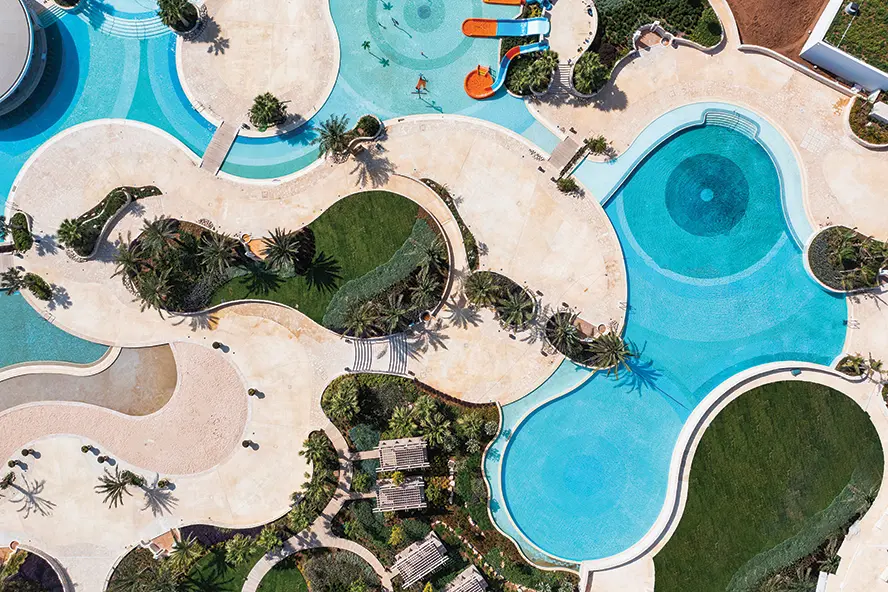 Andrew W Scott: Thanks for speaking with us Grant. Melco Resorts opened City of Dreams Mediterranean on 10 July. Why was Cyprus the right place to develop an integrated resort?
Andrew W Scott: Thanks for speaking with us Grant. Melco Resorts opened City of Dreams Mediterranean on 10 July. Why was Cyprus the right place to develop an integrated resort?
Grant Johnson: Melco is always looking for international opportunities. Six years ago, when Cyprus decided to open up a tender process for a casino or integrated resort, we liked the fact that it brought us a presence in Europe and expanded City of Dreams to a whole new customer base. The Cyprus government said all the right things. They were very pro-tourism.
Cyprus is underdeveloped as a market – it’s kind of a hidden gem for the Mediterranean – so we thought the market had lots of potential. It’s close to the Middle East, it’s part of Europe and it’s an hour from North Africa. So, this part of the world seemed like it had potential for the brand.
AWS: City of Dreams Mediterranean is located in Limassol, which is known as a tourist town. Can you explain the choice of Limassol as the location?
GJ: It was up to us when we obtained the license to decide where we wanted to build. Nicosia is the capital and Larnaca is where the airport is located, but Limassol is kind of the tourist destination. That’s the upcoming one. There has been lots of development here over the past 10 years with more 5-star hotels, international restaurants. It doesn’t have the best beaches compared to other places in Cyprus, but as far as being a tourist city, it’s Limassol. That’s why we chose it.
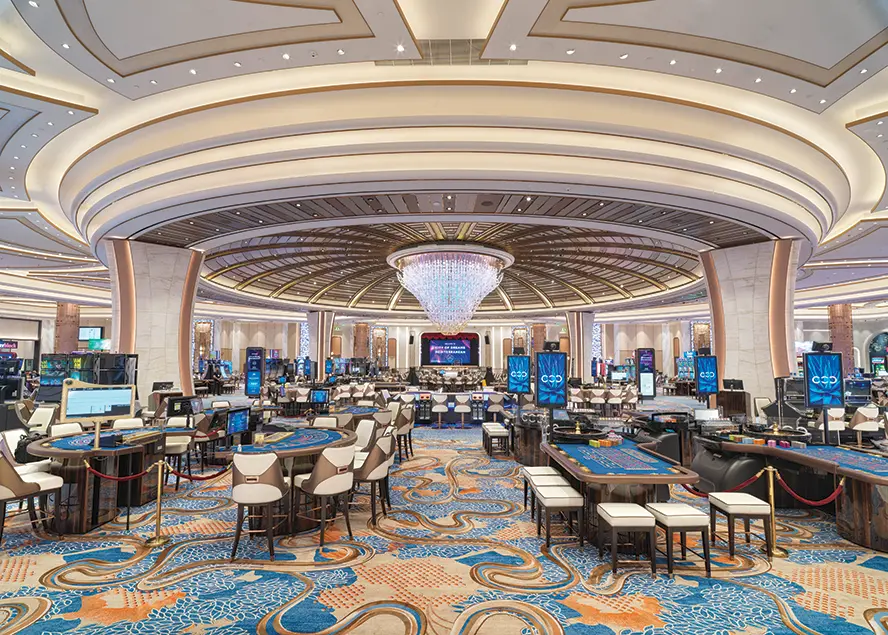 AWS: Who is your target market?
AWS: Who is your target market?
GJ: It was Russia, but our priority list has shifted, as you can imagine, after the war in the Ukraine and some of the things going on with Russia, so our priority now is Israel. Our new customers right now, 70% of them are coming from Israel. Then there are all the Gulf countries – Jordan, Qatar, the Emirates, Saudi Arabia – so we’re seeing most of our big players come in from the Gulf countries and really our mass business come in from Israel, primarily. But you can throw in lots of tourists from the UK and Central Europe, a bit of northern Africa as well.
AWS: Are you targeting the Chinese market at all, given that Melco has a significant Chinese database?
GJ: Under Lawrence’s direction, we really built this property to reach new market segments, so we’re here to bring the City of Dreams brand to the Middle East. There may be Asian players that are based here in Europe and we’re starting to reach out and do things with some of the Asian communities both here in Cyprus and around the region. There may be some crossover.
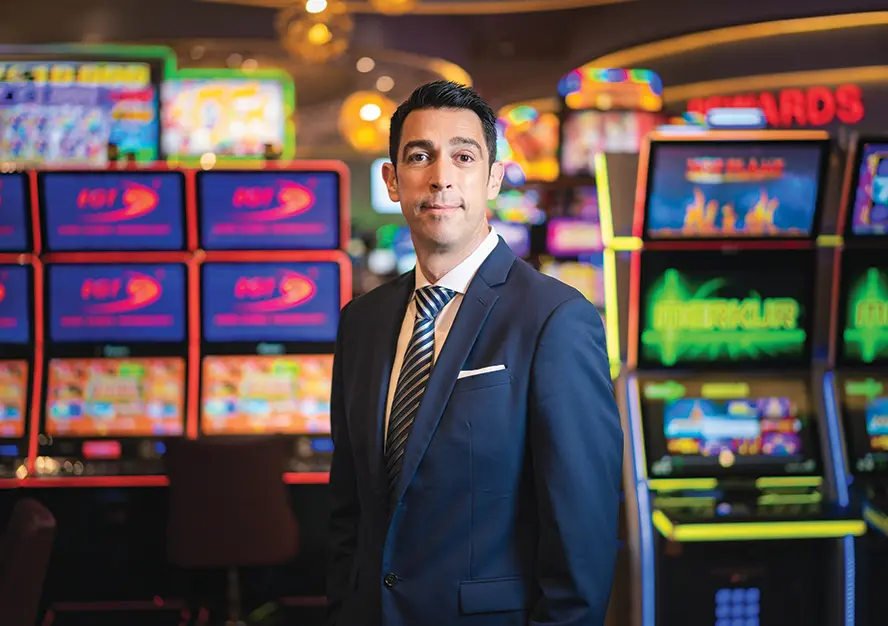
AWS: How about the product itself? What does City of Dreams Mediterranean have to offer?
GJ: It’s a more than €600 million investment. We’ve got 500 5-star luxury rooms, including 24 suites. We’ve got a huge MICE facility which is big for Cyprus. We didn’t have an international convention center in Cyprus to compete with the rest of the region, so this puts us on the map. It’s very much a weekend market and one of the remits from the government was to make this a year-round destination, not just a summer destination or a weekend destination over summer. The MICE part helps as it does in other jurisdictions.
We’ve got six signature restaurants, the largest pool scape in Cyprus, probably the largest in Europe, so it’s what we’ve come to expect from Macau in an integrated resort, but in a whole new market. We are Europe’s largest integrated resort.
AWS: As you say, this is the first time the IR model that we’re so familiar with in Asia and Las Vegas has ever been done in Europe. How has it been received?
GJ: That’s a great question. I lived in Macau and Hong Kong for almost 20 years, and in Asia we’re used to the term “integrated resort”. But we weren’t used to it before that whole Cotai Strip started to develop. It is an education process here. We use the term “Europe’s largest integrated resort” all the time but I think people aren’t fully aware of what that means. The idea of a tourist resort with everything under one roof, they kind of understand once they dive into our website and start to arrive and feel what we have.
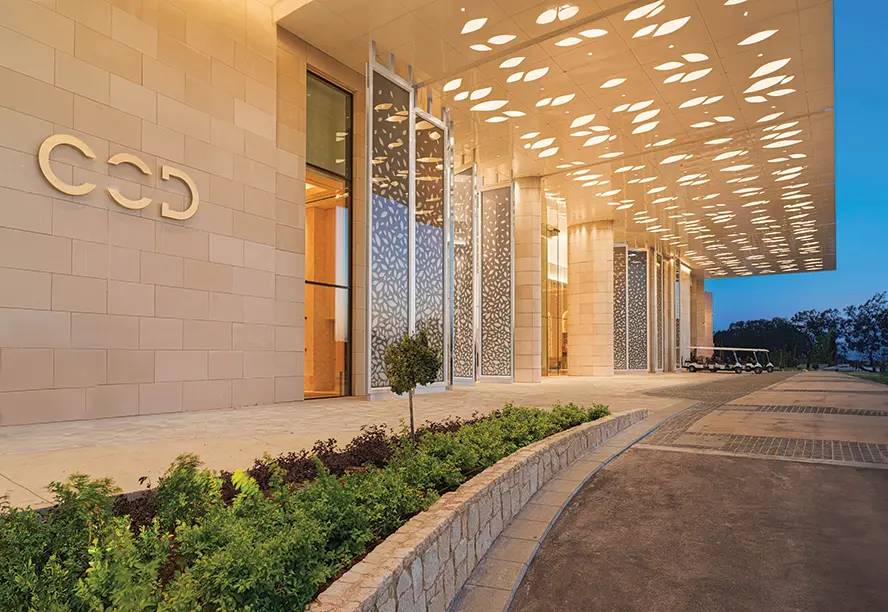 AWS: Do you have junkets here, and if so, is that what they are called?
AWS: Do you have junkets here, and if so, is that what they are called?
GJ: We do call them junkets, but they are not junkets as you or I would know them. We have two licensed junkets right now and others that are in the application process. Junkets here are more what we would call agents back in Asia. They are referrers. It is cash play directly through us. They bring them in as a referral and there’s either a commission or a revenue share for those agents.
AWS: There is also a lot of talk at the moment about the shifting nature of gaming markets. In Macau, everybody is talking about gaming versus non-gaming and the shift from VIP to premium mass. How are those splits playing out in Cyprus?
GJ: We operated four satellites here in the local market before we operated the integrated resort, which we call C2 Casinos. The C2 Casinos were primarily for the locals market with some international business. Now with the integrated resort we’re transitioning from a local satellite business to an international destination driven by international players and visitation. But we’re still going through that because 10 July was our official opening. It is early days for us.
The reason for us coming and the goal with the government when we set out to build this was 300,000 incremental tourists per year, and that’s our target.
It’s much more of a leisure destination than some of the other properties in Asia where you have non-gaming amenities built around the casino customer, because we’re in this kind of growth or ramp-up period right now where we’ve got more leisure customers coming than we do pure gaming customers. But as we grow, that mix will change. It’s too early to give you percentages or numbers, and it’s a different dynamic here.
Most of the people in Macau come to gamble first but we’re seeing a lot of people coming here for our facilities. They’re coming for holidays because it’s summer season here, so they are coming in with families through July and August. We’ve got a decent base of gamers in our mix, but that’s going to grow over time as we build up our database because it’s all new right now and it’s not a steal share market – we’re the only integrated resort in the market so we’re ramping up from scratch. Every week we’re seeing incremental international gaming visitation, but we’ve got a long way to go.
In the peak season in August, we’ll have an ADR of over €400 during the weekdays and even higher on the weekend. There’s a healthy leisure business, and as leisure travelers come to this destination, they know there’s a casino here. We’re seeing nice crossover play from those leisure customers. If I’m from the Middle East and I’m coming here for a holiday I already know there’s a casino and I’m excited about that.
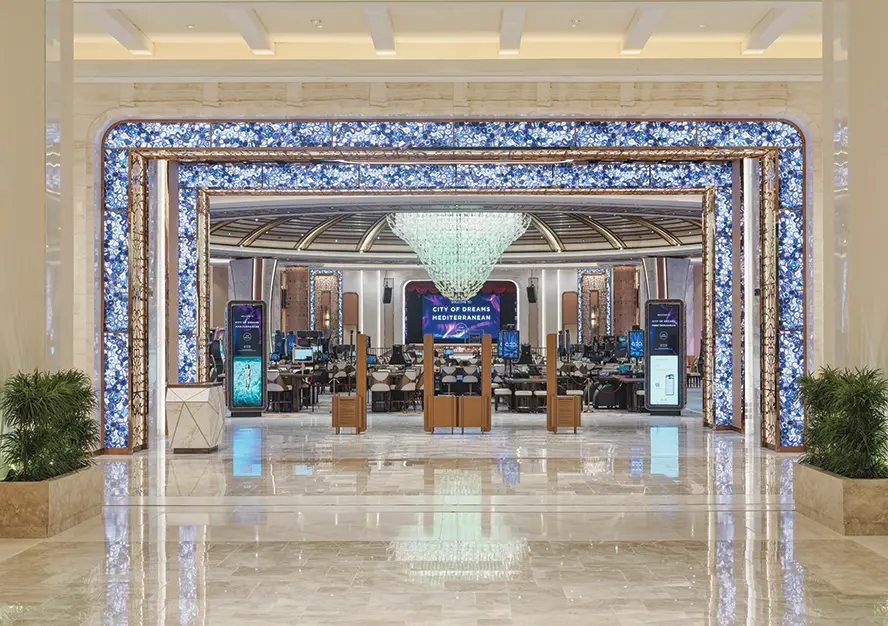
AWS: How have you found the ease of doing business in Cyprus?
GJ: It’s an adjustment. I came from Macau where it was an established market where everyone is focused on the destination and there’s gaming experience at all levels. But we have basically built the gaming market here, so it’s still fresh. Just as a reference, we had a base of 700 colleagues in our satellites, and then we went up to 2,000 for the integrated resort, so we added 1,300 just for the resort and we’re still looking for another 400. The majority of those that we’re hiring had no gaming experience and most of them didn’t have hospitality experience.
The regulator here was brand new as well. They were created for this project, for casinos, so everything is kind of new. It’s a bit of a learning process but everyone is supportive. Everyone wants to help. The government is supportive, the new regulator is supportive, but as I said it’s all new and the market mix is different so there are challenges for sure. We’re working through it. We opened which was a huge milestone and now we’ve got to ramp quickly.
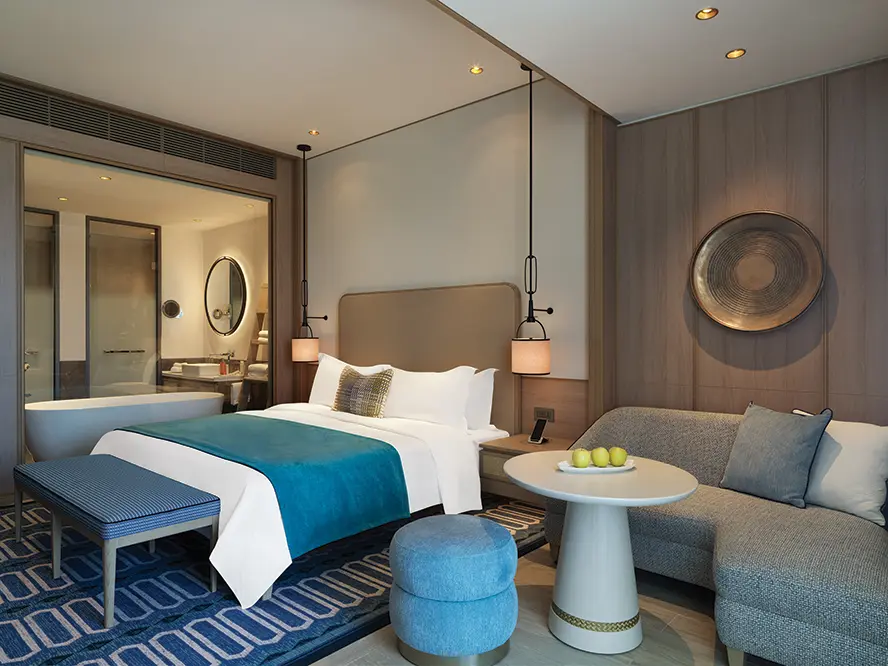 AWS: How have you found the experience of training all those staff?
AWS: How have you found the experience of training all those staff?
GJ: We have a training center and we brought over a lot of our colleagues from our Manila team and the Macau team and just did a mass onboarding. Those 1,400 people all came on in a period of six months really, and some of them came in two months before we opened our doors, plus there’s more coming. We had the training programs from the other properties and established a huge training center. Most of our colleagues had no experience when we brought them in and it was a massive undertaking.
One of the things we really struggled with was the small population in Cyprus and many of them didn’t know casinos. The ones they knew were the C2 satellites which aren’t the glamorous integrated resort that we now have, so hiring was probably one of our biggest challenges.
But I think it will get easier now. I hope that people see what the resort is and what we’re about, that we’re not just a satellite casino. We’re Europe’s biggest and best.
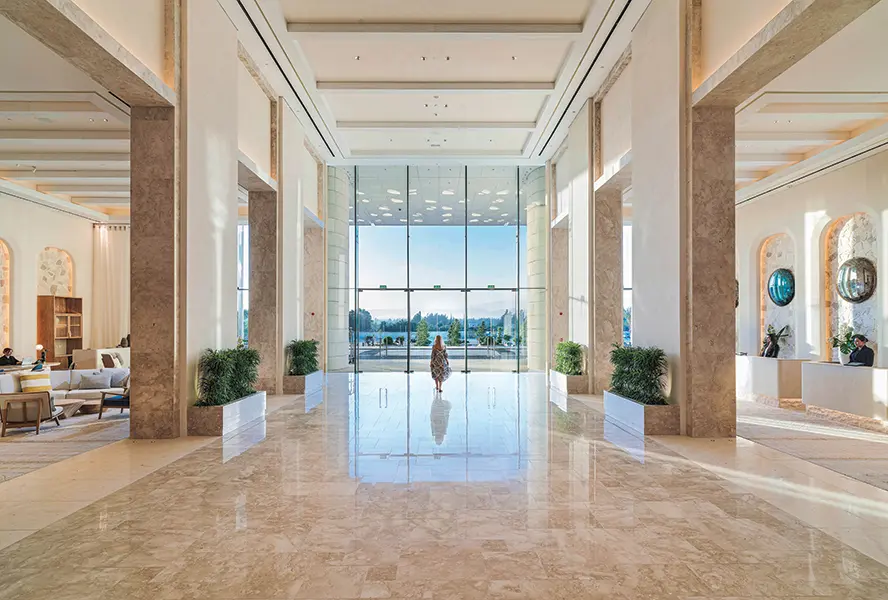 AWS: You talk about the small population. How about their availability and bringing in staff from elsewhere?
AWS: You talk about the small population. How about their availability and bringing in staff from elsewhere?
GJ: We have over 600 people that we hired from third country nationals, which is sort of the equivalent of a Macau blue card. We got an unprecedented number of those from the government, which has been incredibly helpful. That was one of the areas where the government was very supportive. We hired from throughout the EU, but 45% of our colleagues are local and we hope to have more than that in the long run. We think there’s great opportunity locally but again, it was educating the market on what an integrated resort is and the opportunities here. That will grow in time.
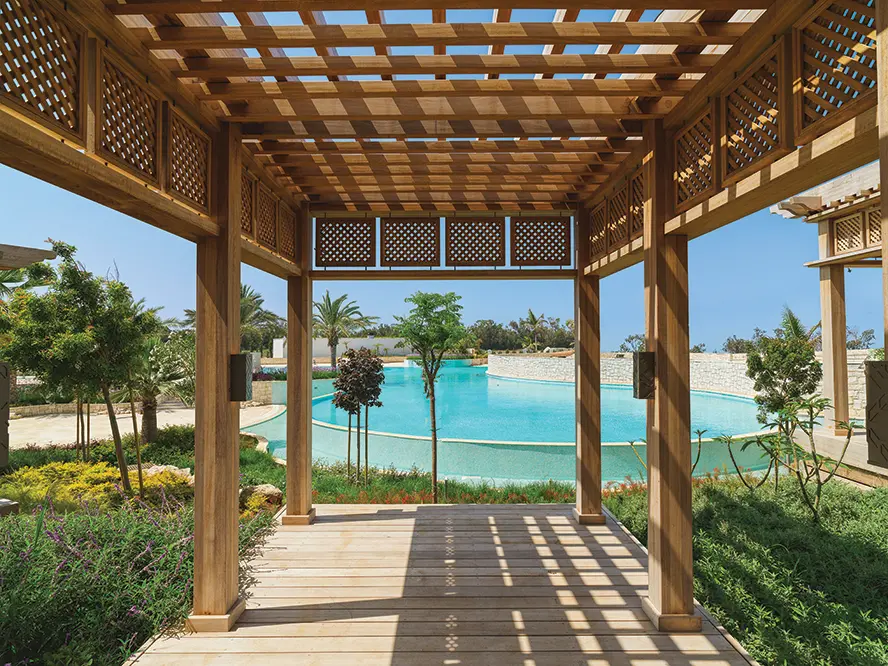 AWS: What is the future of the C2 satellite casinos?
AWS: What is the future of the C2 satellite casinos?
GJ: We’ve got one each in Pafos, Ayia Napa and Nicosia. We had a big one in Limassol which we called the Limassol Temp – that was 28 tables and 326 machines. It wasn’t glamorous but it was a large footprint. The law said that once we opened the IR we would close that temporary facility, but the law also says we can only do 50 machines in those other satellites, which is quite limiting.
Our longer-term goal now that we’re open is to ramp-up and make sure we get our ROI back and make sure that we fill up the integrated resort, but we think there are opportunities in the satellites as well.
Fifty machines is limiting in Nicosia in particular, and then in the summer season in Ayia Napa and in Pafos you have tourists that aren’t going to come to the integrated resort every day. Maybe they’ll come once, but it’s a seven-day holiday. If they had table games in Ayia Napa, we think tourists would be interested in a better product there. And then Nicosia at the capital where you’ve got also an international community living there, we think there’s opportunity. So we’re going to look at longer term growth opportunities for those satellites.
